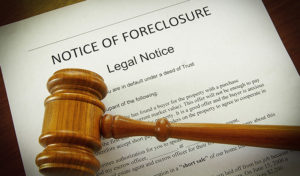Some homeowners may be surprised to find that their home has gone into Tennessee HOA foreclosure. But, can an HOA foreclose on your home in Tennessee? What laws govern this process?
Tennessee HOA Foreclosure: Is It Legal?
 Community association living definitely has its perks — from access to exclusive amenities to benefitting from convenient services. But, members of homeowners and condo associations do have to pay a price, and this price is typically mandatory. When someone buys a home in an HOA or a condo, they automatically become a member of that association. That means they will need to pay regular dues, just like everyone else.
Community association living definitely has its perks — from access to exclusive amenities to benefitting from convenient services. But, members of homeowners and condo associations do have to pay a price, and this price is typically mandatory. When someone buys a home in an HOA or a condo, they automatically become a member of that association. That means they will need to pay regular dues, just like everyone else.
These dues cover the expenses associated with maintaining and managing the community. They pay for maintenance and repairs, insurance, landscaping, security, and more. Naturally, when a homeowner stops paying their dues to the association, they face certain consequences.
It usually begins with written notice of the delinquency, coupled with a late fee. Sometimes, HOA boards have the authority to suspend a delinquent member’s privileges, too. An association might even refer the account to a collection agency or attempt to get a money judgment against the owner. In many cases, though, an HOA can go as far as attaching a lien to the property and subsequently initiating foreclosure.
Many states allow homeowners associations and condos to use liens as a way to collect a delinquent owner’s debt. The lien itself will cloud the title to the property and make it difficult for the homeowner to sell the house or refinance their mortgage. Most of the time, an association will foreclose on a delinquent owner’s home to satisfy their outstanding debt to the HOA. But, is a foreclosure by HOA Tennessee allowed?
Tennessee HOA Foreclosure Laws to Know About
According to the Tennessee Condominium Act of 2008, condominiums do have the power to impose liens and initiate foreclosure. It is worth noting that this Act governs all condominiums formed after January 1, 2009. For condominiums formed before that, the Tennessee Horizontal Property Act comes into play.
Currently, there is no law in Tennessee governing homeowners association liens. But, homeowners associations can impose liens and initiate foreclosures as provided within their governing documents, specifically the CC&Rs.
Understanding Liens Within the Context of HOAs and Condos
For newer condominiums, liens automatically attach to the property as soon as the HOA fee becomes due. But, condo boards can perfect the lien, i.e. make it effective, by filing it with the country recorder’s office. For homeowners associations, on the other hand, the situation can change depending on what is written within the CC&Rs. As such, HOA boards should refer to their governing documents for guidance.
Normally, when it comes to HOA lien foreclosures in Tennessee, there are other charges that the association can include in the lien. Apart from past-due fees and assessments, these can also include late charges, any reasonable fines charged after the board has performed a disciplinary hearing, administrative and recording fees, and interest. These specific charges can vary, though, so homeowners and board members should still check their HOA’s governing documents for clarity.
Once a condo association wishes to foreclose, it can do so through judicial or nonjudicial action. A COA can only take the nonjudicial route if its governing documents allow it and if it provides the condo owner with proper notice of the foreclosure. Moreover, a COA must begin foreclosure proceedings within 6 years of the perfecting of the lien. If the COA fails to do so, the lien expires.
All About Lien Priority
 Homeowners should understand that their associations can still place liens on their property even if they are up-to-date on their mortgage. Mortgage payments and dues payments are two different things. When an HOA or condo does foreclose on an owner’s property, though, what will happen to the mortgage? This is where lien priority comes in.
Homeowners should understand that their associations can still place liens on their property even if they are up-to-date on their mortgage. Mortgage payments and dues payments are two different things. When an HOA or condo does foreclose on an owner’s property, though, what will happen to the mortgage? This is where lien priority comes in.
Lien priority simply determines who, among all of the creditors, gets paid first after the completion of a foreclosure sale. In general, the lien that comes first and gets recorded first holds priority. Thus, after a foreclosure sale, the proceeds will need to satisfy the first lien before all the other liens. If there are any proceeds left, they will then be used to satisfy the second lien. The cycle goes on until there are no more liens left to be paid or until the proceeds run out. Because of this, lower priority liens sometimes don’t get anything.
Although the timing of the lien recording generally dictates lien priority, state laws and an HOA’s governing documents can influence this. In Tennessee, the only liens that hold priority over COA liens are:
- Liens and encumbrances recorded prior to the recording of the COA’s declaration
- Real estate tax liens or government liens
- A first mortgage or deed of trust recorded prior to the date of delinquency
Tennessee HOA Foreclosure Due to Unpaid Fines
Dues and assessments are not the only financial obligations homeowners have to an association. Sometimes, an HOA or COA will impose a fine on an owner, usually because of a violation of a rule. For example, an association might issue a fine to an owner because they failed to park in their designated parking spot. If the owner also fails to pay this fine, a Tennessee condo association can typically attach a lien and foreclose on the property as well. Interestingly, with an HOA Tennessee foreclosure, there is no minimum dollar amount for the fine.
Not the First Option
Dealing with a Tennessee HOA foreclosure can be a headache for both the homeowner and the association. The best way to avoid such a threat is for owners to simply fulfill their financial obligations to the HOA or condo. As for association boards, it may be prudent to explore other collection methods first before initiating foreclosure proceedings. After all, many homeowners don’t intentionally miss out on their payments. More often than not, delinquencies are caused by financial hardships or even just bad memory.
If your condo or HOA board needs help keeping delinquencies low, Cedar Management Group is the HOA management company for you. Call us today at (877) 252-3327 or contact us online to learn more about our services.
RELATED ARTICLES:
- HOA Fine Policies: What’s Reasonable And Legal?
- Tennessee National HOA Fees: How Much Should You Pay The HOA?
- Tennessee HOA Rules: Keeping The Community In Order






